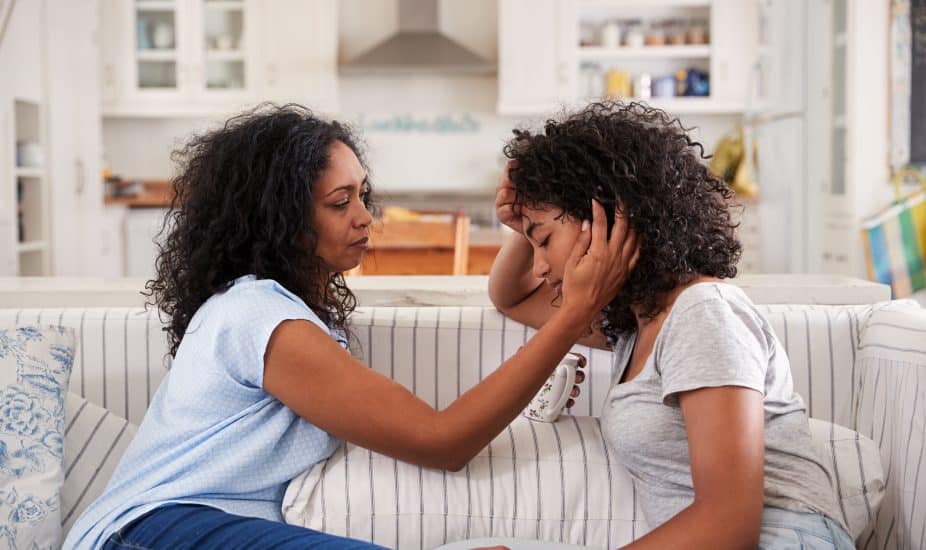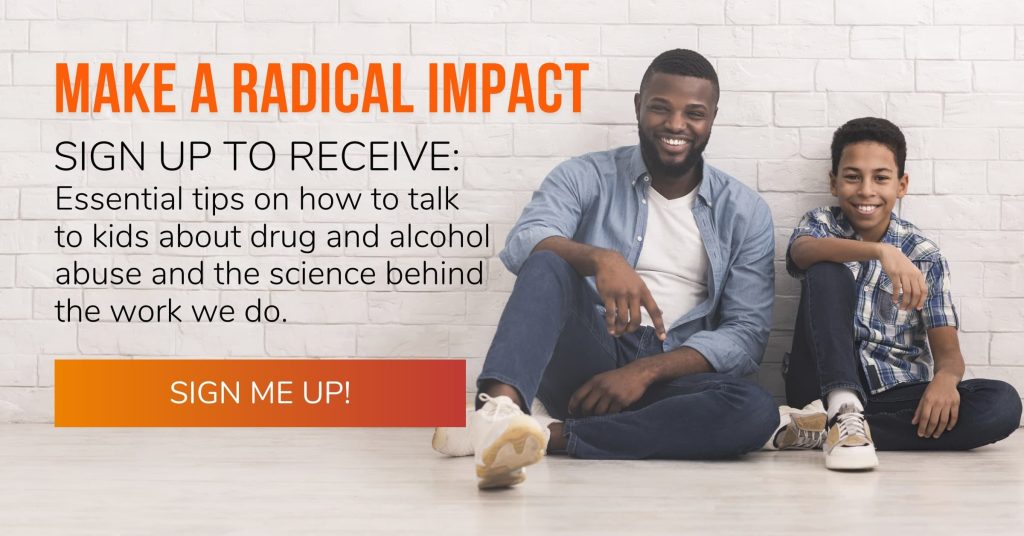It’s relatively easy to spot a kid who’s struggling with anxiety — chewed fingernails, shifty gaze, upset stomach, forgetfulness, irritability, or trouble sleeping. But, a lot of times it’s just below the surface and manifests itself in different ways that aren’t as recognizable.
Frankly, anxiety is a part of everyday life. We all get anxious because there’s plenty to be anxious about. It’s a natural response to circumstances out of our control.
The Role of Anxiety in Everyday Life
It’s not all bad — healthy anxiety helps us take necessary precautions, and it helps us be on our toes. Anxiety drives a lot of our behavior, actually, and learning how to cope with it and manage it is an essential life skill. However, it’s not always productive, and without recognizing it or managing it, we can do unintended damage.
As parents and educators, we can teach our kids how to recognize anxiety and manage it so they can avoid making choices that take them down the wrong path.
Understanding Anxiety in Kids
Anxiety in kids comes in different forms. For some, it’s primarily physiological. Think of a tightened jaw, butterflies in the stomach, clenched muscles, or tense shoulders. For others, it’s more noticeable in their thought life — worry, exploring different scenarios, or catastrophizing daydreams about what might happen. It can be hyper-vigilance, or it can look like a complete freeze or shutdown of their emotions.
Anxiety impacts kids, and without learning how to deal with it in a healthy way, they might turn to unhealthy ways to cope with their own discomfort.
The Impact of Anxiety on Teenagers
![]()
We know that 13 is the average age of first-time drug and alcohol use, and 90% of lifelong addiction struggles start during the teen years, it’s imperative we learn how to teach kids effective coping strategies.
Kids develop patterns for how they manage their emotions at a young age, and they typically maintain those patterns for the rest of their lives. Without thoughtful intervention, many kids will seek ways to avoid the discomfort of so-called negative emotions through a variety of means to help them numb out to them, and too often that includes harmful substances that can wreck their lives.
We all feel stressed and anxious from time to time — some more than others. Teenagers, especially, experience tremendous stressors that impact their learning, their mental and physical health, and their relationships.
Learning how to understand your own emotional reactions and find effective ways to manage your stress and anxiety is a crucial life skill.
We can guide kids to become more self-aware by providing reflective activities for them. Even a minute of slow breathing at the start of a class period or a simple gratitude exercise around the dinner table can pay extraordinary dividends for a kid’s long-term emotional health and maturity.
For further resources, we highly recommend taking a look at a couple of guided breathing exercises from irrefutable experts:
Related: Understanding Teenager Peer Pressure
Here are 4 things we can we do to support kids and help them develop healthy emotional intelligence:
- Help normalize anxiety: Share with them the definition of anxiety, and explain just how common it is. We can help them understand that the emotion is a response to threat or danger and recognize how useful it can be when properly managed.
- Share with our kids about our own experiences of anxiety: The more open and honest we are about our anxiety the more they will feel normal for having their feelings. Kids need the opportunity to see how normal it is to have anxiety — especially in the adults involved in their lives.
- Explain to them the different forms it might take: We can share with them what forms anxiety might come in and how it might take shape in their life. Ask them to identify how they experience anxiety, and do your best to help them interpret their feelings through that lens.
- Teach them coping strategies that work for us and for others: Ideas like breathing exercises, making to-do lists, getting enough sleep, journaling, or physical exercise. When they share with us times when they’ve put those mechanisms to use in their life, or if we see them using them, we can be sure to praise them and affirm what they’re doing. That can help reinforce the behavior to become a habit which will, in turn, serve as an asset to them in life.
The most important thing to teach our kids about anxiety might be this: anxiety is uncomfortable.
To the extent that our kids see substance use as a relief for their uncomfortable feelings, they will be more prone to make unhealthy choices. If they see drinking, vaping, or drugs as solutions to their problems, they will head down an uncertain path. Those consequences are severe.
That’s why it’s so important to teach our kids to understand and manage their anxiety in healthy and productive ways. So that they have the capacity to handle the unavoidable uncertainties in life and grow stronger through difficult circumstances.
NaturalHigh.org is a drug prevention nonprofit that inspires and empowers youth to find their natural high and develop the skills and courage to live life well. We do this by engaging influencers, educators, and peer groups to help young people discover those core activities in their lives that uplift, inspire, and motivate them — to find their ‘Natural High’ rather than use alcohol or drugs. We provide content and action steps that are easy, fun, and effective.
We share materials for free and encourage our community to use us as an ongoing resource with no associated costs. Click here to learn more about how our program works.
Each week we send out short, content-rich articles on the most important topics parents and educators need to know about in order to guide their kids to a thriving life. With digestible, relevant research, plus actionable exercises and activities you can implement. If you’d like to receive the Natural High Essentials, just click here and sign up today.


